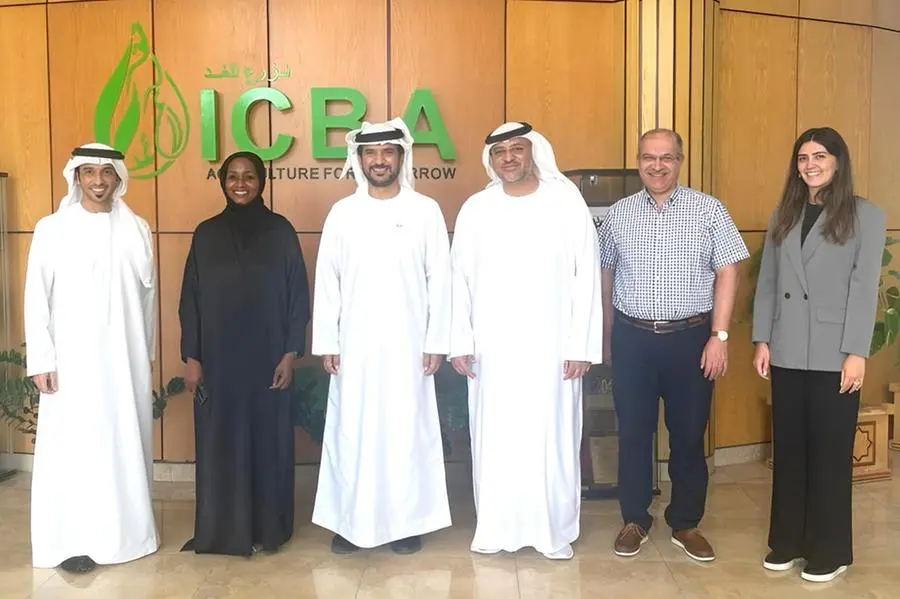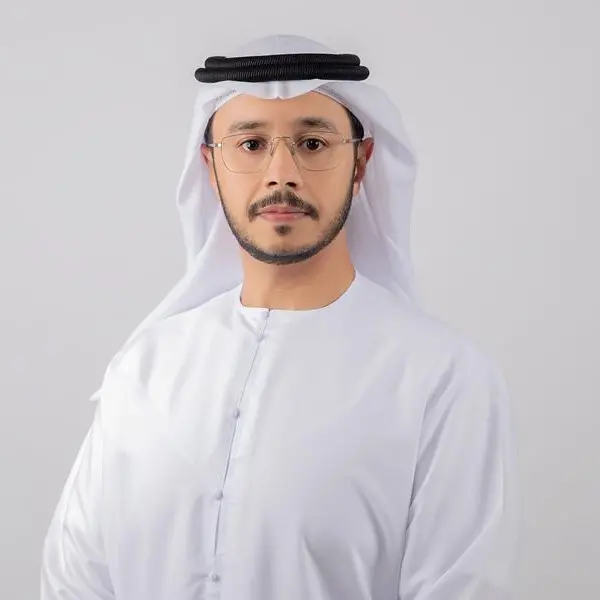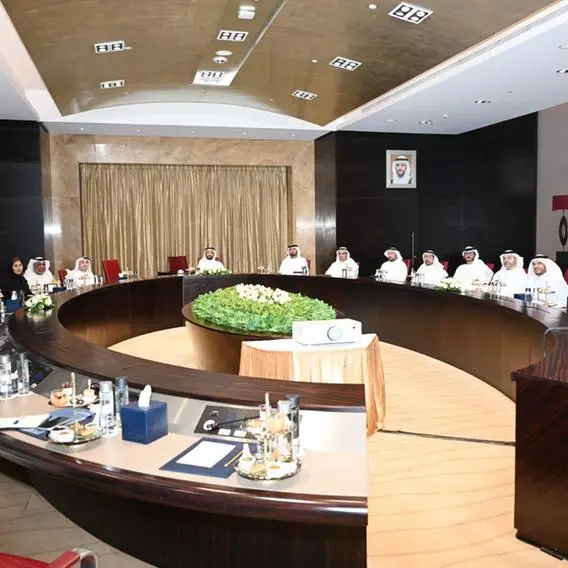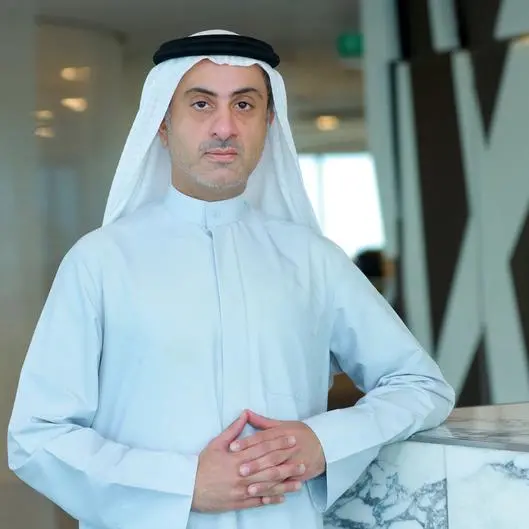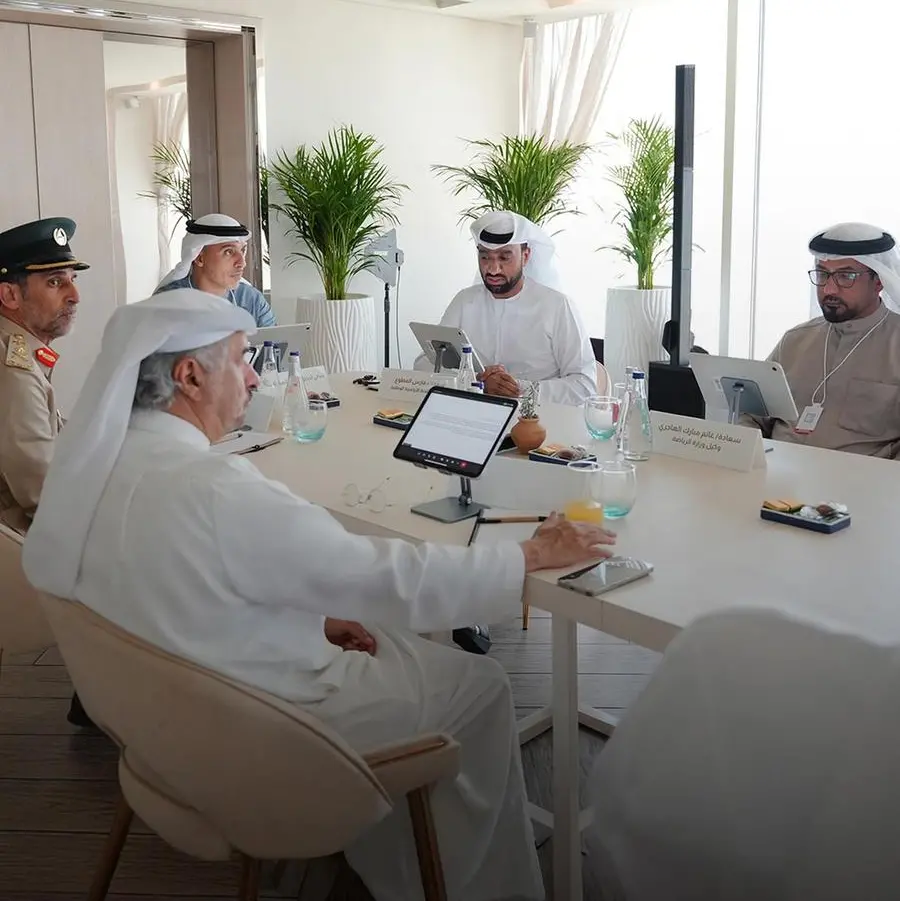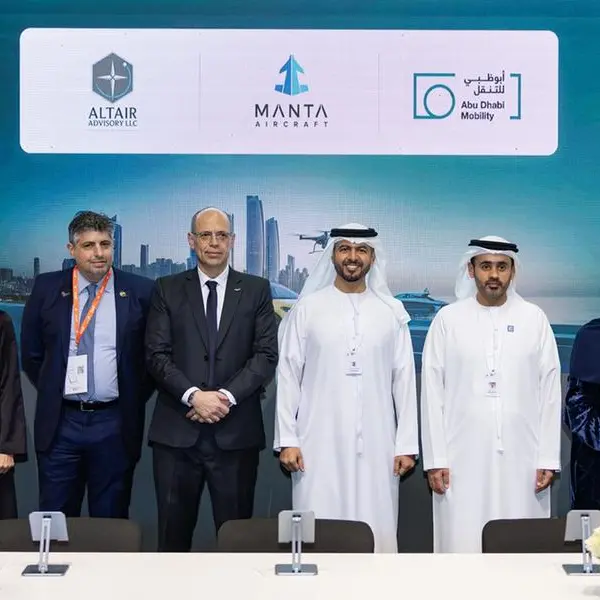PHOTO
Dubai, UAE – His Excellency Engineer Awaidha Murshed Al Marar, Chairman of the Abu Dhabi Department of Energy (DoE), visited the International Center for Biosaline Agriculture (ICBA) to explore synergies in the field of energy efficiency and sustainable agricultural practices.
During the visit, H.E. Awaidha Murshed Al Marar toured ICBA’s key facilities, including the research stations in the field, as well as the state-of-the-art laboratories, greenhouses, and the Emirates Soil Museum. The tour highlighted ICBA’s pioneering efforts in developing climate-resilient crops and water-saving technologies, aimed at enhancing agricultural productivity in challenging environments.
During the visit, His Excellency Awaidha Murshed Al Marar praised the center's outstanding contributions to agricultural research and innovation, underscoring its pivotal role in advancing sustainable agricultural development. He remarked, "Our visit today reflects our commitment to enhancing cooperation by harnessing clean and renewable energy technologies, along with sustainable practices, to drive progress in the agricultural sector and secure a resilient food future for all."
His Excellency further emphasized that the UAE has consistently demonstrated remarkable proficiency in overcoming water scarcity, crediting this success to the foresight of its leadership. He noted that through the strategic use of natural resources, the adoption of advanced technologies, and ongoing research and development, the nation continues to achieve self-sufficiency while addressing the growing challenges of climate change and its impact on food security.
Dr. Tarifa Al Zaabi, Director General of ICBA, highlighted the importance of interdisciplinary collaboration between energy and agriculture sectors in addressing global challenges like climate change and food insecurity. “At ICBA, we are committed to harnessing innovation and technology to develop climate-resilient agricultural systems. Today’s visit by H.E. Awaidha Murshed Al Marar underscores the importance of cooperation between energy and agriculture sectors and supports ICBA’s national agenda for knowledge development and transfer in the UAE.”
Dr. alzaabi added: “By integrating clean energy technologies into our agricultural practices, we can enhance productivity, reduce environmental impact, and contribute to the UAE’s goals for energy transition and food security.”
The visit culminated in a discussion on future collaborations, where ICBA and the Abu Dhabi Department of Energy explored avenues to further integrate renewable energy solutions into agricultural practices, thus contributing to Abu Dhabi’s leadership in sustainability. Both institutions reaffirmed their commitment to innovation, capacity development, and sustainable development that aligns with the UAE Energy Strategy 2050 and ICBA’s mission to develop solutions for global food security in saline and arid environments.
About ICBA
Established by the Government of the United Arab Emirates and the Islamic Development Bank, the International Center for Biosaline Agriculture (ICBA) is a unique international not-for-profit applied research-for-development center. The center’s approach integrates strategic alliances, technical expertise, and knowledge empowerment to co-create innovative solutions for sustainable livelihoods and food security in saline and arid environments. The center’s research is at the nexus of soil, water, crops, and climate to prevent, manage and recover from salinity in agricultural lands. Through this holistic and integrated approach, ICBA strives to make a lasting positive impact on the lives and livelihoods of farming communities, ensuring their resilience and contributing to a more sustainable future for all.
www.biosaline.org
